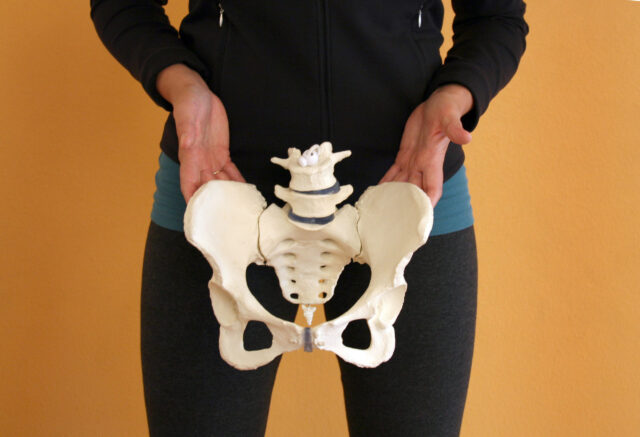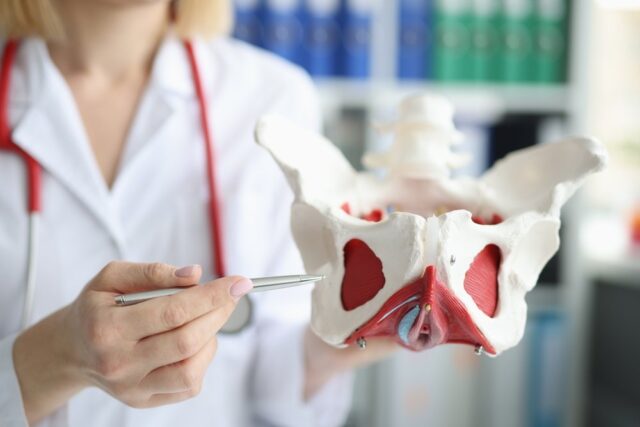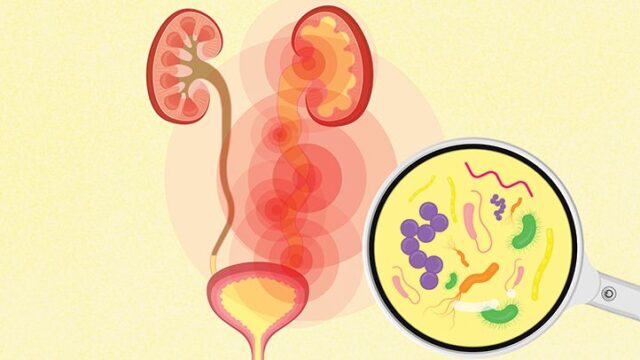
Pregnancy and childbirth cause many changes to the body, some of which are often irreversible. While you can forever remain thankful for your little bundle of joy, the after-effects of pregnancy on your body are often not that pleasant or gratitude-inducing.
One such change is the degeneration of the muscles of the pelvic floor. Many women silently put up with constant pain and symptoms like leaking urine, accepting these as consequences of childbirth.
In fact, many global studies have revealed that women are less likely to seek medical attention for their health problems. While this discrepancy is glaring in developing and underdeveloped countries, developed economies also exhibit this trend, especially when it comes to reproductive health and menstrual hygiene.
Are you worried about the strength of your pelvic muscles? Read on to learn what signs of degeneration to look out for and what to do if you show the symptoms.
Why Is Pelvic Health Important?

Many women experience painful and often embarrassing symptoms post-childbirth, which are difficult to communicate and seek attention for. Muscular degeneration of the pelvic floor is one such condition. Aging of the body can also cause this condition.
Whichever the case, this condition is a painful one with symptoms that adversely affect everyday activities. The good news, however, is that it is never too late to start caring for the muscles of your pelvis.
If you seek medical attention, proper treatment, exercises, using a pelvic floor trainer, and a healthy diet can go a long way in healing and strengthening these muscles.
Why Do The Muscles Of The Pelvic Floor Degenerate?

Before discussing the symptoms of a weak pelvic floor, we must first establish what they are and why their weakening is concerning. Pelvic floor muscles are placed inside the pelvis, between the pubic bone and the coccyx or the tailbone.
They consist of muscular bands called sphincters that encircle the urethra, the anus, and the vagina. These muscles support the bladder, rectum, uterus, and vagina, which is why they might suffer lacerations during childbirth.
Numerous women across the globe struggle with the degeneration of the muscles of the pelvis caused either due to age or by the impact of childbirth. The stress and stretching that these muscles undergo during childbirth can cause damage and even weaken them.
It can also be caused due to aging, but the symptoms in such cases resemble senile degeneration of muscles. While the symptoms generally improve a few weeks after delivery, for some, the problem persists much longer.
Top 5 Signs Which Indicate Degeneration Of Your Pelvic Floor
Your body has several ways of telling you that your pelvis needs attention. While some of these can be painful enough to disrupt your everyday activities, others can be embarrassing. People with weakened pelvic muscles commonly experience the following symptoms:
1. Involuntary Urination

One of the most widely identified symptoms of a degenerated pelvic floor is urinary incontinence or involuntary leaking of urine. It implies that the patient might face a partial, or sometimes even complete loss of control over their bladder. New parents usually experience this condition right after childbirth.
When these muscles are not strong, they cannot support the urethra in regulating bladder movements. As a result, the urethra loses strength and fails to control the discharge of pee from the body at will.
Involuntary leaking of urine happens when one sneezes, coughs, works out, or laughs. Simple activities like these exert pressure on the bladder, which it cannot handle if your pelvic floor is weak. That gives rise to accidental leaking and is known as stress-induced urinary incontinence.
2. Sudden Bowel Movements

Although not as common as uncontrolled urination, fecal incontinence is a symptom of a degenerated pelvic floor that disturbs many women. Fecal incontinence means a loss of control over bowel movements leading to stool involuntary leaving the body.
Much like the accidental leaking of pee, this condition is also the result of weak muscles that cannot support the rectum. It is one of the most embarrassing problems new parents face, making it difficult for them to seek medical help. It is more common if the patient experiences a fourth-degree tear during delivery.
3. Painful Sexual Interactions
Many patients with weak muscles of the pelvis also complain of painful sex, although not many would identify it as a symptom of this condition. Painful sexual experience is associated with conditions like Sexually Transmitted Diseases and other infections. However, tension or stress in this region can also cause this.
The pain experienced during sexual intercourse can be mild, moderate, or severe. A complete loss of sensation in the pubic region often accompanies the pain in such cases. Problems in intimate relationships are consequences of this situation, especially when the problems last for a long time.
4. Queefing

Vaginal flatulence or queefing is a condition when the wind comes out of your vagina, accompanied by a farting sound. It is another unfamiliar symptom of a weak pelvic floor and often surprises patients.
Degenerated muscles allow air to get trapped easily, causing flatulence during everyday activities like yoga, stretching, a quick workout session, and cycling.
5. Frequent Infections

Patients often attribute the symptoms of pelvic floor weakness to Urinary Tract Infections or UTIs. A weak pelvic floor often makes you more susceptible to UTIs as it causes a compromise in the overall health and immunity of the pelvic region.
Passing blood in the urine, a feeling of burning when peeing, frequent urges to pee, ad pain in the pelvic region, are among the symptoms of UTIs.
Conclusion
Other symptoms of weakened pelvic muscles include vaginal dryness, frequent urge to pee, and pain in the pubic region. These can even lead to the prolapse of one or more pelvic organs in severe cases.
As we have already discussed, many symptoms of pelvic floor weakness are embarrassing, making the problem difficult to discuss. However, it is essential to visit a medical practitioner and seek help if you have been showing one or more of these symptoms. The longer you leave the problem untreated, the more severe its implications on your health, self-esteem, and intimate relationships.








